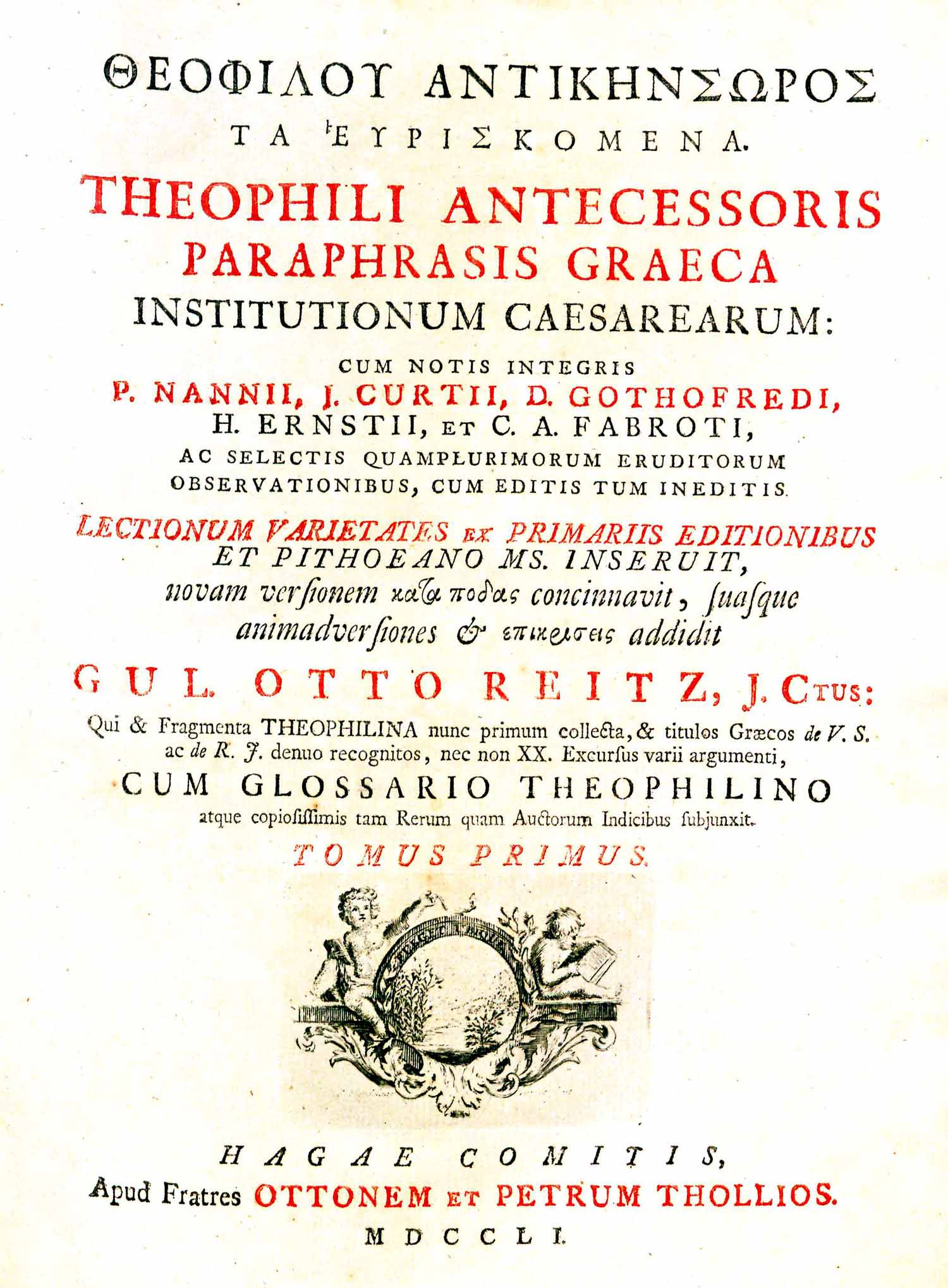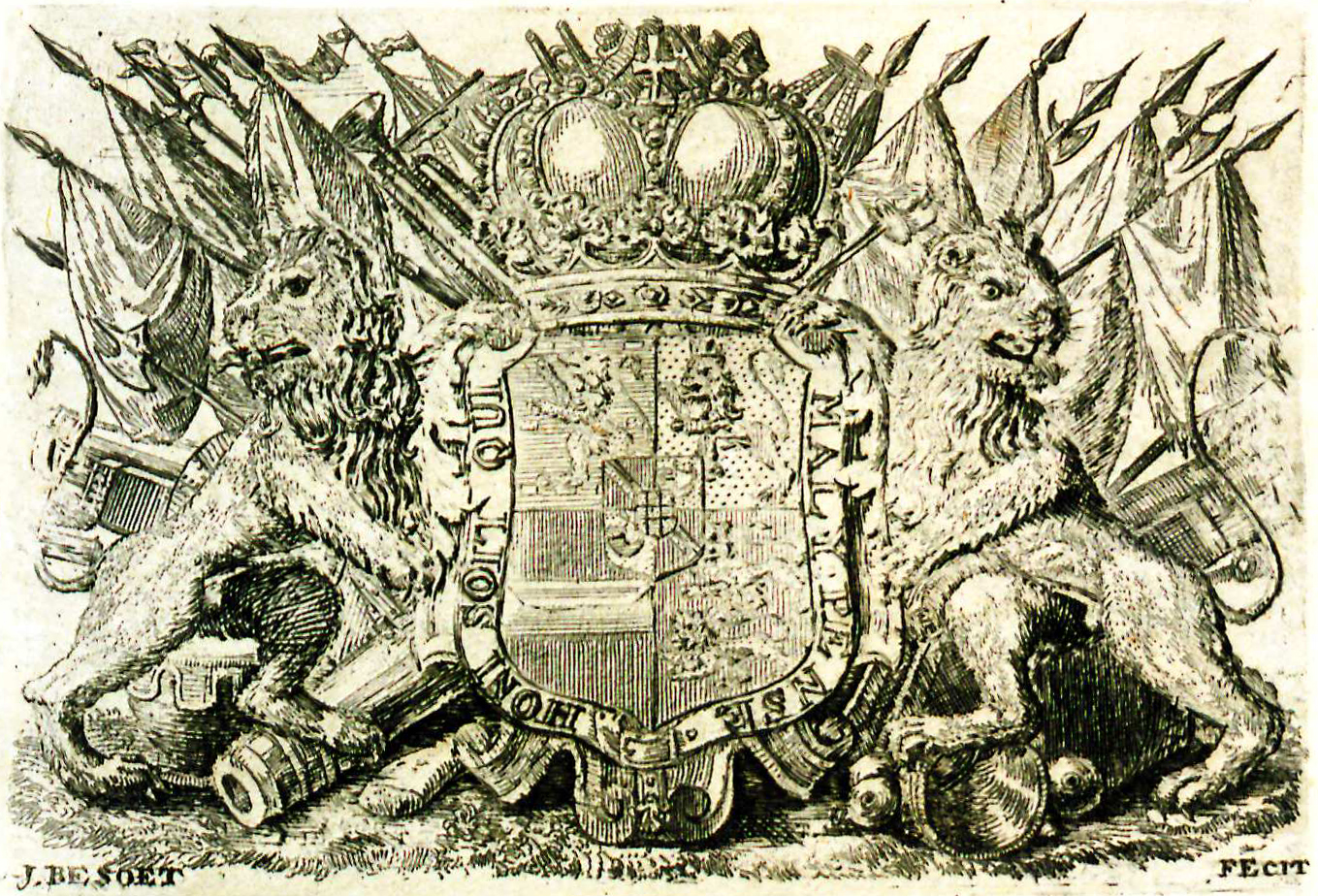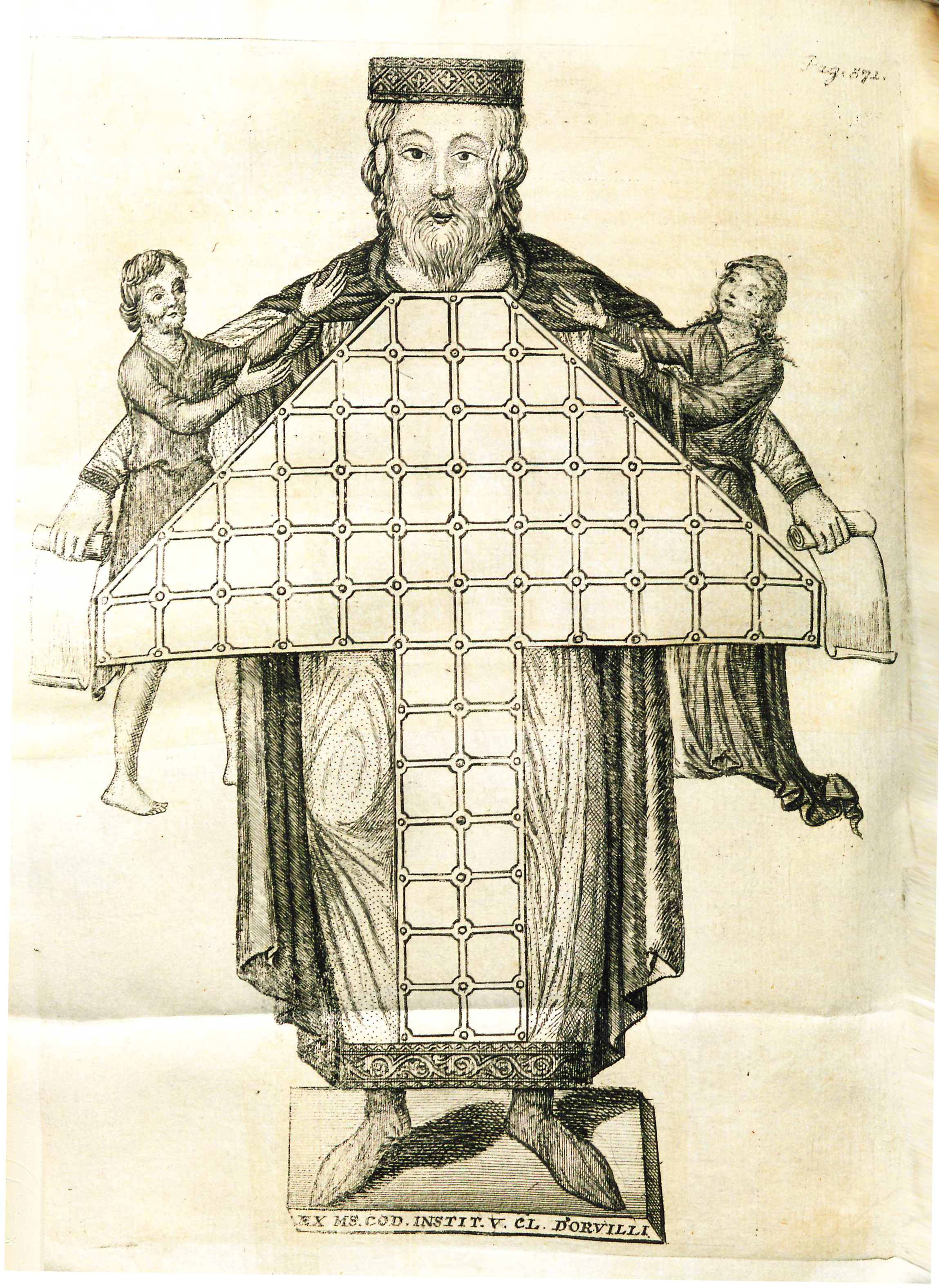Theophilou Antikēnsōros ta Heuriskomena
Theophilou Antikēnsōros ta Heuriskomena: Theophili Antecessoris Paraphrasis Graeca Institutionum Caesarearum
by Theophilus
| Theophilou Antikēnsōros ta Heuriskomena | |
|
Title page from Theophilou Antikēnsōros ta Heuriskomena, George Wythe Collection, Wolf Law Library, College of William & Mary. | |
| Author | Theophilus |
| Translator | Wilhelm Otto Reitz |
| Published | Hague Comitis: apud fratres Ottonem et Petrum Thollios |
| Date | 1751 |
| Language | Greek and Latin |
| Volumes | 2 volumes in 1 volume set |
| Desc. | 4to (26 cm.) |
According to the “Imperial Promulgation in Confirmation of the Institutes,” The Institutions were legal education books assembled from 529 to 534 CE at the instruction of Emperor Justinian so that the law could more efficiently be learned and ineffective and obsolete laws could be removed.[1] Theophilus was chosen along with Dorotheus as men of “known learning and tried fidelity” (law professors) to edit and compile the four books of The Institutions with Justinian’s chancellor, Tribonianus.[2] Though all ancient law was utilized, most of the content came from “the commentaries, institutions, and other writings of Gaius[3].”[4] These four textbooks were part of Justinian’s codification of Roman law in the sixth century, culminating in his Corpus Juris Civilis, with each of the professors writing two followed by Tribonianus doing the final edit.[5]
</br>The Institutions were used as a first-year law book for many students after being promulgated in December 533, and the complete text in Latin remains to this day. Conflicting interpretations of the entire Codex were avoided by forbidding commentaries.[6] This particular copy of the work contains both volumes of Theophilus’ Institutions contribution combined into one, and is in both Greek and Latin (unlike the original).
Evidence for Inclusion in Wythe's Library
Wythe ordered "- the Works of Theophilus in greek and latin, two volumes in quarto, published at the Hague in 1751, by Gul. Otto Reitz." from London merchant John Norton in a letter dated May 29, 1772. Records indicate the order was fulfilled.[7] All four of the Wythe Collection sources (Goodwin's pamphlet[8], Dean's Memo[9], Brown's Bibliography[10] and George Wythe's Library[11] on LibraryThing) list the 1751 edition of Theophilou Antikēnsōros ta Heuriskomena. The Wolf Law Library purchased a copy of the same edition.
Description of the Wolf Law Library's copy
Bound in contemporary Dutch gilt prize vellum with stamped decorations to spine and covers.
Find this work in the William & Mary's online catalog.
References
- Jump up ↑ The Institutiones. Translated by George Harris. Harvard University: W. Green and T. Chaplin, 1814: xii.
- Jump up ↑ Ibid.
- Jump up ↑ “Gaius(jurist)
- Jump up ↑ Ibid.
- Jump up ↑ "Justinian's codification" in Oxford Dictionary of the Classical World, ed. by John Roberts (Oxford: Oxford University Press, 2007).
- Jump up ↑ Ibid.
- Jump up ↑ Frances Norton Mason, ed., John Norton & Sons, Merchants of London and Virginia: Being the Papers from their Counting House for the Years 1750 to 1795 (Richmond, Virginia: Dietz Press, 1937), 242-243. The letter is endorsed "Virga. 29 May 1772 / George Wythe / Recd. 21 September / Goods Entr. pa. 163/ Ans. the March 1773."
- Jump up ↑ Mary R. M. Goodwin, The George Wythe House: Its Furniture and Furnishings (Williamsburg, Virginia: Colonial Williamsburg Foundation Library, 1958), LIII.
- Jump up ↑ Memorandum from Barbara C. Dean, Colonial Williamsburg Found., to Mrs. Stiverson, Colonial Williamsburg Found. (June 16, 1975), 8 (on file at Wolf Law Library, College of William & Mary).
- Jump up ↑ Bennie Brown, "The Library of George Wythe of Williamsburg and Richmond," (unpublished manuscript, May, 2012) Microsoft Word file. Earlier edition available at: https://digitalarchive.wm.edu/handle/10288/13433.
- Jump up ↑ LibraryThing, s. v. "Member: George Wythe," accessed on March 20, 2014.
External Links
Read this book in Google Books.


